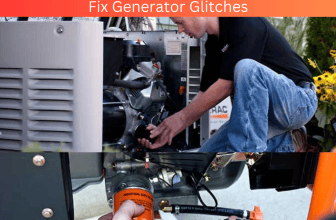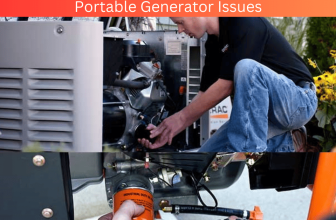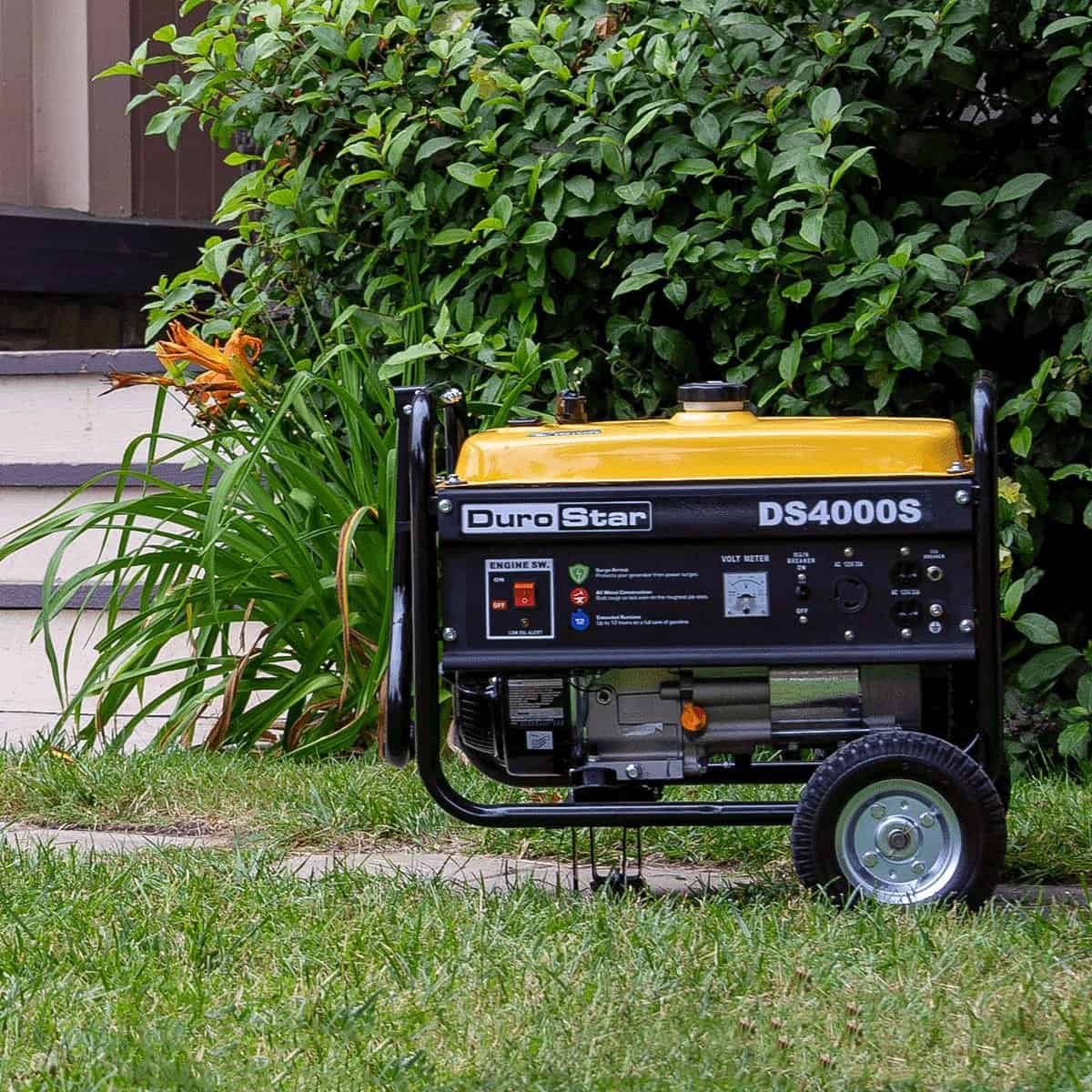
Power outages can lead to spoiled food, frozen pipes, and even moldy walls if not addressed quickly. Picking the right generator is crucial for protecting your home during blackouts or major weather disasters.
With numerous options available in today’s market, finding the perfect fit may seem daunting. In this blog post, we’ll navigate you through various types of generators and outline essential factors to consider when choosing one that best suits your needs.
Key Takeaways On How to Choose A Generator
- Different types of generators serve unique purposes, such as portable generators for outdoor activities or standby generators for long-term backup power during extended outages.
- When choosing a generator, it’s important to consider factors such as your power needs and wattage requirements, fuel type and efficiency, outlets and connection type, portability and size, noise level, and budget.
- Consider safety precautions when using a generator – properly install and maintain it with approved cords and accessories; never run it indoors without proper ventilation.
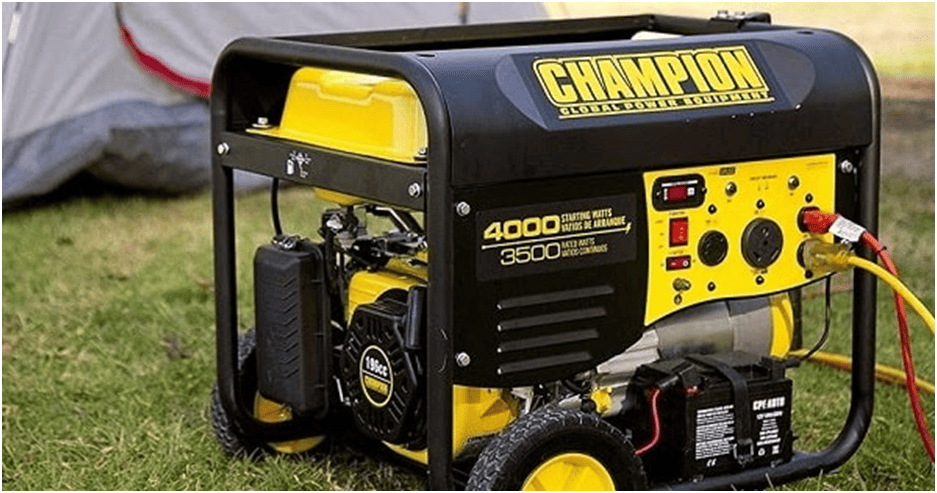
Types Of Generators To Choose From
Choose from a variety of generator types, including portable generators, standby generators, inverter generators, RV generators, and PTO generators to meet your specific backup power needs.
Portable Generators
One of the most popular types of generators for homeowners and outdoor enthusiasts alike is the portable generator. These versatile power sources are perfect for providing backup power during outages, ensuring your essential appliances like refrigerators or sump pumps keep running, preventing spoiled food, flooded basements, and other costly issues.
Portable generators come in a variety of sizes and wattage capabilities to suit your specific needs. For example, a small recreational generator might work well for powering lights and charging devices during an outdoor adventure, while a large portable model could handle multiple heavy-duty tools on a construction project.
Some models even offer dual-fuel options that allow you to switch between gasoline and propane for added flexibility.
Standby Generators
A standby generator is a powerful and reliable solution for maintaining uninterrupted power supply during extended outages. These generators are permanently installed outside your home or business, much like an air conditioning unit.
One of the biggest advantages they offer is their ability to automatically kick on in the event of an outage, ensuring you’ll never be left in the dark unexpectedly.
These generators typically operate on natural gas or propane fuel sources with installation requiring professional assistance from a Master Electrician who ensures proper connection to your circuit breaker panel or subpanel.
Gas-powered standby generators provide the convenience of tapping into your existing gas line while propane-powered units offer longer fuel storage life and lower carbon emissions compared to gasoline.
Though standby generators come at a higher price range, their convenience and safety features make them an excellent investment for those living in areas prone to major weather disasters or frequent blackouts.
Inverter Generators
Inverter generators are an efficient and reliable option for providing power to your appliances during a power outage or when you’re off the grid. They offer numerous advantages compared to traditional portable generators, such as being quieter and more fuel-efficient.
One of the main benefits of inverter generators is their clean energy output – they produce “true sine wave” electricity which closely mimics what’s provided by utility companies.
This ensures that sensitive electronics like laptops and smartphones can be safely charged without experiencing damage from inconsistent power supply. In addition, these versatile little machines come in various sizes ranging from small recreational units capable of powering a few devices up to large models suitable for running essential household items like refrigerators and air conditioning systems.
RV Generators
If you are an RV owner, having a reliable generator on board is essential for your comfort and convenience. RV generators come in different sizes and types to meet your power needs while on the road.
A portable generator is ideal if you only use minimal appliances or need backup power occasionally. Inverter generators are great if you want a quiet, efficient unit that can also charge electronics.
However, if you require continuous power supply for all your onboard systems, including air conditioning, consider investing in a dedicated RV generator designed to withstand the rigors of travel and provide reliable performance at all times.
PTO Generators
I know of a type of generator that’s not as well-known as the ones we commonly think of, but can be very useful depending on your needs – PTO generators.
These generators are designed to work on farms and ranches where they can be powered by the engine of a tractor. This makes them a cost-effective option for those who already have tractors on site.
Something else to consider is how you’ll connect the generator to your devices or appliances. You may need an inlet installed in order to plug in cords directly from the PTO generator or use extension cords with locking-type outlets.
Additionally, remember that fuel source is another consideration – Liquefied Petroleum Gas (LPG) can be cleaner and safer than other options like petrol or diesel.
Factors To Consider When Choosing A Generator
Consider your power needs and wattage requirements, fuel type and efficiency, outlets and connection type, portability and size, noise level, and budget when choosing a generator.
Power Needs And Wattage Requirements
Understanding your power needs and wattage requirements is crucial when choosing the right generator for your home or business. Your choice will depend on the appliances you want to power during an outage.
For instance, a typical refrigerator requires around 600 watts to keep its contents cool. Meanwhile, central air conditioning units can range from 1,000 to over 5,000 watts depending on size and efficiency.
It’s worth noting that some appliances require extra starting current in addition to regular running watts. For example, an electric water heater can draw as much as three times its rated wattage while starting up.
Fuel Type And Efficiency
Choosing the right fuel type for your generator is crucial in terms of efficiency and cost-effectiveness. Gasoline generators are widely used because they’re easy to find, but propane generators offer more benefits like cleaner emissions, less maintenance, and longer shelf life.
Diesel generators have an edge when it comes to durability and long-term use.
It’s important to note that the fuel type can affect the efficiency of your generator. For example, some engines run better on one type of fuel over another because each engine has different combustion characteristics.
However, conversion kits can allow generators to run on either petrol or LPG providing flexibility and potential cost savings in the long run.
Outlets And Connection Type
One of the most important factors to consider when choosing a generator is the number and type of outlets. Different appliances require different types of connections, so it’s crucial to ensure that your chosen generator has the necessary outlets.
Having multiple outlet options on your generator can also save you money and hassle. A heavy-duty generator cord set will eliminate the need for multiple extension cords while providing safer connectivity.
Also, some generators come with both AC outlets and USB ports which make charging devices easier in case of power outages or when outdoors camping trips or other recreational activities.
Portability And Size
When it comes to choosing the right generator, portability and size are key factors to consider. If you need a generator that can be easily transported from one place to another, a portable generator with wheels is the best option for you.
It’s important to choose a generator size that fits your needs without being too bulky or difficult to move around. Consider your lifestyle and where you will be using the generator most frequently.
For example, if you plan on taking your generator camping or using it at outdoor events, a compact and lightweight model would be ideal.
Remember also that some generators come with folding handles or additional mobility features such as wheels which make them much easier to transport even for those with back issues or difficulties lifting heavy objects.
Noise Level
It is important to consider the noise level of a generator when choosing the right one for your needs. Noise levels are measured in decibels (dBA), and different generators can have varying levels of noise output depending on their type and size.
For example, most popular 1,000-2,000 watt inverter generators generate 50-60 dBA noise level at full rated load.
If you plan on using your generator for outdoor activities like camping or tailgating, make sure to choose a generator with a lower noise level. You should also compare the noise level of your chosen generator to any local regulations your area might have.
Budget
As you consider purchasing a generator, another factor to think about is your budget. Generator models can range in price from a few hundred dollars up to several thousand dollars, depending on the size and type of generator you choose.
For example, a small recreational inverter generator can be purchased for as little as $300, while home standby generators typically cost upwards of $5,000.
It’s important to remember that investing in a quality generator is ultimately an investment in peace of mind during power outages or other emergencies. While it can be tempting to opt for a cheaper model upfront, keep in mind that higher-end generators often have more advanced features such as automatic shutoffs and carbon monoxide safety technology built-in – both key features when considering safe use over time.
How To Determine The Right Size Generator
To ensure that you purchase the right size generator, it’s important to assess your power needs and calculate required wattage.
Assessing Your Power Needs
To choose the right generator, it’s essential to assess your power needs. Here are some factors to consider:
- Calculate the total wattage needed: Add up the wattage requirements of all appliances that you want to power during an outage. Check the product data plate or operator’s manual for each device.
- Determine essential vs non-essential items: Consider what items you need during a power outage, such as refrigerators, sump pumps, and medical devices. Non-essential items like televisions and gaming consoles can be eliminated from the total wattage calculation.
- Consider starting vs running watts: Some appliances require more power when first started than when running continuously. Make sure to factor in both starting and running watts when calculating total wattage.
- Plan for future needs: Think about any upcoming changes that may increase your power needs, such as adding home automation systems or new appliances.
- Use a generator sizing calculator: To make calculations easier, use online tools like Briggs & Stratton’s generator sizing calculator to determine the ideal size generator for your specific needs.
By taking these steps, you can ensure that you choose a generator with enough power to keep your essential appliances running during an outage without overspending on extra features or wattage that you don’t need.
Calculating Required Wattage
Calculating the required wattage for a generator is essential to ensure that it can power all your necessary appliances during an outage. Here are the steps to calculate the needed wattage:
- Make a list of all the appliances and tools you want to run during an outage.
- Find out the wattage or amps each appliance requires, which can be found on the label or in the owner’s manual.
- Calculate the total wattage by multiplying each appliance’s wattage by how many you plan to use at once.
- Add up all the individual wattages to determine the total starting watts and running watts needed.
- Multiply the total starting watts by 1.5 for extra power required during start – up.
- This will give you the minimum amount of starting watts needed for your generator.
For example, if you plan to run a fridge (800W), sump pump (1200W), and some lights (60W), you would need at least 3000 starting watts (800+1200+60=2060 x 1.5=3090).
It’s essential not to overlook this critical component when choosing your generator so that it has enough power output to protect against freezing pipes, spoiled food, flooded basements, moldy walls, and other inconveniences associated with prolonged outages according to U.S Energy Administration.
Safety Tips And Recommendations
Ensure proper installation and ventilation of the generator to prevent carbon monoxide poisoning, use approved cords and accessories for safe operation, and perform regular maintenance checks to keep the generator in good condition.
Proper Installation And Ventilation
Installing and operating a generator can be dangerous if not done correctly. Here are some guidelines to ensure proper installation and ventilation:
- Location – Install the generator in a well-ventilated area, away from doors, windows, and vents to prevent exhaust fumes from entering the house.
- Level Ground – Place the generator on level ground to prevent fuel leakage.
- Electrical Wiring – Hire a qualified electrician to install and connect the transfer switch and subpanel to your home’s electrical system.
- Fuel Supply – The fuel supply must be regulated by an automatic shutoff valve or manual shut off valve installed near the generator.
- Carbon Monoxide Detector – Install carbon monoxide detectors in your home and near the generator for added safety.
- Air Inlet/Outlet – Ensure that there is enough air circulation around the generator by providing openings for air inlet/outlet.
- Clearances – Maintain at least 3 feet of clearance on all sides of the generator for easy access during operation and maintenance.
By observing these guidelines, the risk of carbon monoxide poisoning, electrocution, or fire will be minimized when installing a backup power supply like generators in your home.
Regular Maintenance
Regular maintenance is crucial for the longevity and effectiveness of your generator. Here are some important maintenance tips to keep in mind:
- Clean or replace air filters every 50 hours of use or as recommended by the manufacturer.
- Change oil and oil filters every 100 hours or as recommended by the manufacturer.
- Check spark plugs every 100 hours and replace as needed.
- Inspect fuel lines, hoses, and connections for wear or damage regularly.
- Keep the generator clean and free of debris to prevent overheating.
- Store the generator properly when not in use, following manufacturer’s instructions.
- Test run the generator monthly to ensure it is working properly.
By following these maintenance tips, you can help ensure that your generator will be ready to provide backup power when you need it most during a power outage or other emergency situation. Remember to always refer to your operator’s manual for specific maintenance instructions and recommended intervals based on usage and operating conditions.
Using Approved Cords And Accessories
As a generator owner, it is important to ensure the safety of yourself and others when using your equipment. One way to prevent electrical hazards is by using approved cords and accessories. Here are some key points to keep in mind:
- Always use cords and accessories that are approved for use with your specific generator model.
- The wattage and length of the cord should be appropriate for the generator’s capacity and intended use. Check the operator’s manual or product data plate for specific information.
- Grounded cords and three – pronged plugs should be used to prevent electrical hazards.
- Extension cords should not be chained together or used for long – term use to avoid overheating and fire hazards.
- GFCI protection should be used for outdoor and wet areas to prevent electrical shock.
- Twist-lock plugs and receptacles should be used for heavy-duty appliances and tools.
- Wet hands or standing in water should be avoided when touching the generator and its cords.
- A transfer switch should be installed for proper connection and to prevent overload of circuits.
- Follow all manufacturer’s instructions and safety guidelines when selecting and using cords and accessories with a generator.
By following these guidelines, you can ensure that you are using your generator safely, protecting yourself, your family, and your property from potential hazards.
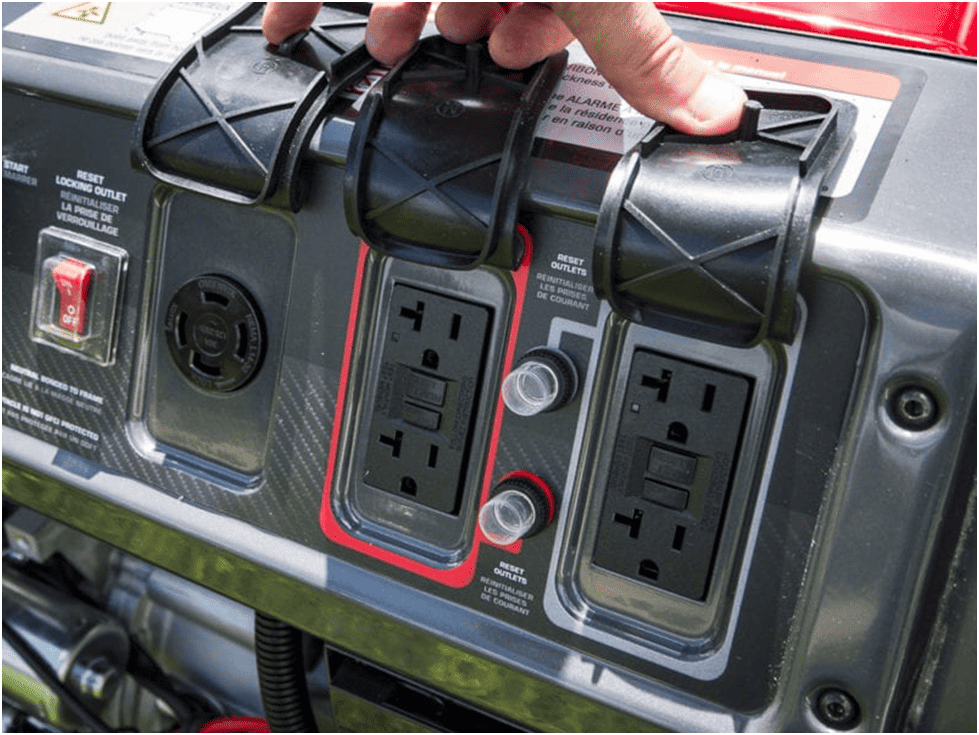
Additional Features And Accessories
Other features and accessories to consider when choosing a generator include transfer switches, extension cords, covers and enclosures. Transfer switches allow you to switch the power supply from the grid to your generator with ease and safety.
Extension cords are essential for powering appliances that are not close enough to the generator itself.
Transfer Switches
If you’re looking to connect a larger generator to your home’s circuit breaker panel, you’ll need a transfer switch. This device is necessary for safely and efficiently switching between power sources during an outage.
A manual transfer switch panel can make portable power more convenient by allowing the powering of entire circuits in the house while keeping things safe with circuit protection and easy-to-use controls.
Some generators, such as standby models, come with integrated transfer switches, making them simpler to install and use during unexpected outages.
Extension Cords
Using the right extension cord is crucial when using a generator. Extension cords should be at least 14 gauge to carry adequate power for a generator, and their length and gauge should be considered when choosing one to use with your specific generator.
It’s essential to ensure the extension cord has proper grounding to prevent electrical shock. At our website, we offer a range of extension cords, including 10 gauge, 12 gauge, and 14 gauge cords.
Some extension cords come with additional features such as LED lights to indicate when the cord is in use. Matching the amperage rating of your extension cord to your generator will prevent overheating and damage to both the cord and generator.
That’s why we recommend using heavy-duty extension cords for larger generators or higher wattage appliances.
Covers And Enclosures
Another factor to consider when choosing a generator is whether it comes with a protective cover or enclosure. These can help protect your generator from the elements and extend its lifespan.
For example, if you plan on using your generator outside, a waterproof cover can keep it dry during rainstorms or snowfall.
At Home Tech Solutions website, we offer a range of covers and enclosures for different types of generators. For example, Briggs & Stratton’s Storm Responder Generator Cover fits over their portable generators to provide protection against UV rays and water damage.
Alternatively, Kohler’s Sound Shield Enclosure for their home backup generators reduces noise levels by 10 decibels compared to standard models – perfect for maintaining peace in quiet neighborhoods.
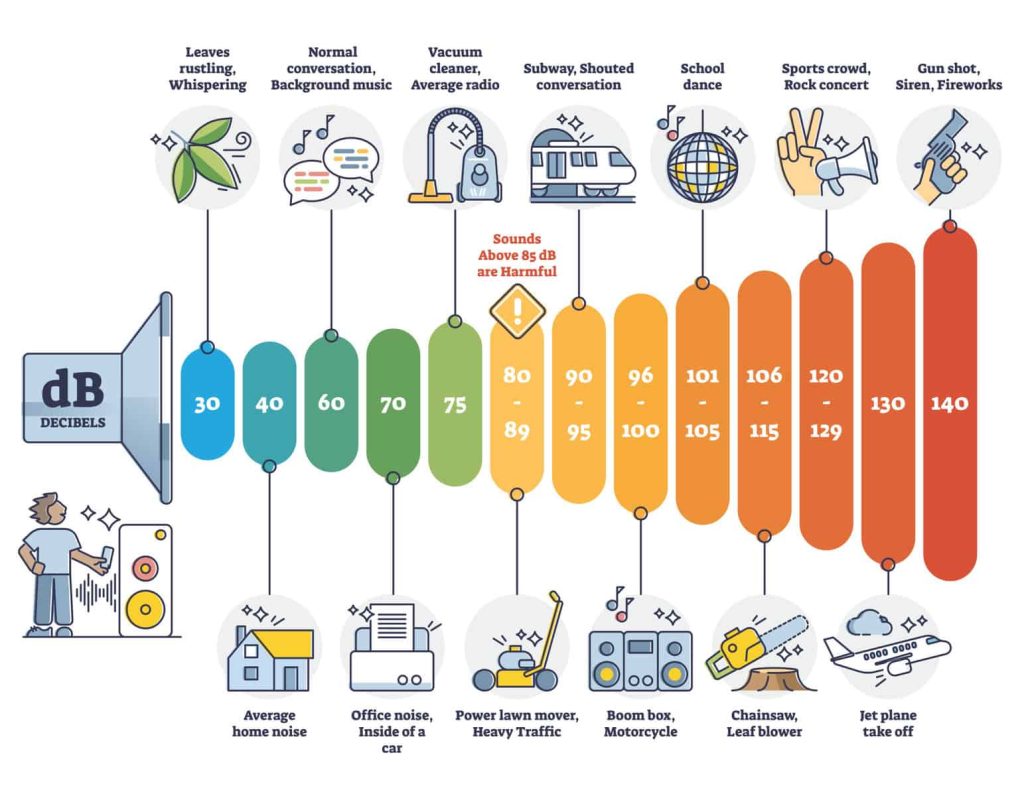
Conclusion
Choosing the right generator is crucial for ensuring you have backup power in case of an unexpected outage. Start by considering your power needs and wattage requirements, then look at factors such as fuel type, outlets, portability, noise level, and budget.
Use a sizing calculator or consult an expert to determine the right size generator for your home or business. Safety should always be top-of-mind when using a generator – make sure it is properly installed and maintained, use approved cords and accessories, and never run it indoors without proper ventilation.
FAQs:
What factors should I consider when choosing a generator?
Some factors to consider include the type of fuel (gasoline, propane, or diesel), wattage capacity, noise level, portability, and runtime.
How do I determine the appropriate wattage capacity for my generator needs?
To determine your wattage needs, calculate the total power consumption of all appliances you plan to use during an outage and add them together. This will give you an estimate of how many watts your generator should be able to produce.
Can generators be used indoors?
Most generators are not designed for indoor use due to the risk of carbon monoxide poisoning. However, there are some specially designed models that can be safely used indoors with proper ventilation.
What maintenance is required for a generator?
Regular maintenance such as oil changes and filter replacements are necessary to keep a generator running smoothly and efficiently. It’s also important to start and test your generator periodically throughout the year to ensure it’s ready in case of an emergency power outage.



